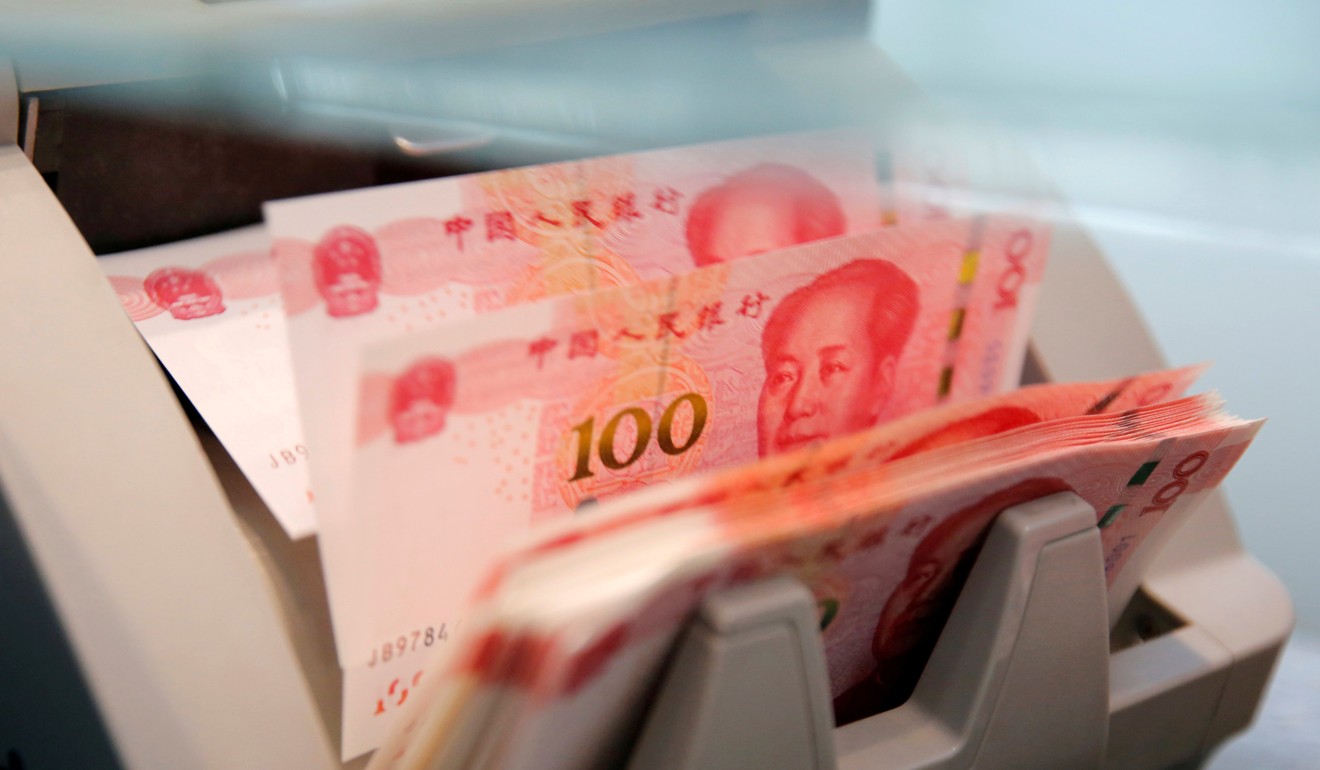Supply chain finance tipped to become US$2.27tn market for Chinese internet firms by 2020
Sector is filling the yawning funding gap, as larger commercial lenders remain belligerently reluctant to grant small loans to businesses and individuals, who present anything like a risk
PUBLISHED : Friday, 20 October, 2017, 11:55am
UPDATED : Friday, 20 October, 2017, 10:35pm
China’s supply chain finance sector is now being tipped to be worth a whopping 15 trillion yuan (US$2.27 trillion) by 2020, and the mainland’s booming internet-based businesses are lining up to grab their own share of it.
The term refers to credit given to small- and medium-sized enterprises (SMEs) that act as suppliers to large blue-chip buyers.
And despite the reverberations from the recent peer-to-peer (P2P) lending crisis, a marriage between information technology and financial services is continuing to play a vital role in transforming Chinese business.

Supply chain finance sector is now being tipping to be worth a whopping 15 trillion yuan (US$2.27 trillion) by 2020. Reuters
“As lots of internet companies, particularly small ones find it difficult to make a profit, they are turning to financial services to help improve their bottom lines,” said Hao Zhiwei, chief executive of consultancy Haowenhaokan, which advises a portfolio of Web-based firms on how best to win more finance-related business.
“Supply chain financing is increasingly viewed as a money spinner to help shore up profits.”
On the mainland, supply chain finance not only serves suppliers but is extending its tentacles into thousands of SMEs which run their businesses via huge e-commerce or logistics platforms.
That 15 trillion yuan figure was calculated by Forward Business, a Shenzhen-based consultancy focusing on studies of IT and other emerging industries. The total value of new loans granted by mainland banks in 2016 was 12.65 trillion yuan.
The Chinese leadership remains determined to reform the country’s financial system, with the principal aim of getting banks and other institutions to extend more credit to cash-hungry small companies.
But the grim reality remains, that the larger commercial lenders remain belligerently reluctant to grant small loans to businesses and individuals, who present anything like a risk.

Glass products at a factory in Hejian, north China's Hebei Province. On the mainland, supply chain finance not only serves suppliers but is extending its tentacles into thousands of SMEs which run their businesses via huge e-commerce or logistics platforms. Photo: Xinhua
P2P first emerged as a new lending model to help redraw the country’s banking industry in 2011, before a raft of scandalous incidents of poor and reckless lending erupted in 2015, prompting the regulators to wade in and clean-up the new class of business, essentially to maintain social order.
Supply chain financing among internet businesses, especially, started growing in leaps and bounds last year, with analyst estimates suggesting a doubling in total volume from 2015.
Most online platform operators have now either launched or have plans to diversify into supply finance chain businesses, as a way of improving profitability.
Xu Shuibo, the founder and chief executive of Tiandihui Supply Chain Management, the mainland’s largest online commercial transport provider, said being able to offer financial services has helped put his business firmly on the road to profit.
“Offering loans to trusted companies using our platforms is a fast track to making quick profit,” he said.
Established in 2013, Tiandihui is an online platform where cargo and trucks are matched.
It s network stretches across 50 mainland cities and it handled some 64 billion yuan worth of transactions last year. The company, which charges fees for its matchmaking, has yet to break even.
Online businesses are diversifying into finance by raising their own fresh funds, which are then lent on to other smaller customers.
In a typical case, the online platform would set up its own small-loans company, but only after receiving a licence from the banking regulator.
The small-loan firm then takes advantage of its parent’s database and connections to do business.
Others form more formal partnerships with banks to offer credit to suppliers and clients, charging service fees on each transaction.
Supply chain finance falls into the business-to-business (B2B) category, which analysts describe as better tools than P2P in supporting the mainland’s overall reform of the finance sector.
As banks continue to shun small business lending, supply chain financing is now viewed as a vital source of working capital, but they charge higher interest than normal bank loans.

People visit a software product and information service trade fair in Nanjing, east China's Jiangsu Province this week. Photo: Xinhua
“Online platforms often have a solid grasp of the detailed operations and financial status of their suppliers and clients, and technically can easily assess the risks of potential defaults,” said Wang Feng, chairman of Shanghai-based financial services company Ye Lang Capital.
“It is a strong prospective sector, but risk management remains the name of the game.”
When P2P first started to flourish it was touted strongly as a potential saviour in helping support millions of under-banked businesses and individuals.
A rash of cases involving unscrupulous operators such as Ezubao, however, which allegedly defrauded about 900,000 investors out of nearly 60 billion yuan, undermined the growth of P2P in China.
Once China’s biggest P2P lending platform, Ezubao folded last year after it turned out to be little more than a Ponzi scheme that collected 59.8 billion yuan
Beijing First Intermediate People’s Court sentenced Ding Ning – the chairman of Anhui Yucheng Holdings Group that launched Ezubao in 2014 – to life in prison, and fined him 100 million yuan for crimes including illegal fundraising, illegal gun possession and smuggling precious metals.
The crux of the matter is whether the companies can eventually eke out profits from their core businesses
Ding Dian, the chairman’s brother, was also sentenced to life, while Zhang Min, Yucheng’s president, and 24 others were sentenced to between three and 15 years.
Joe Zhou, an entrepreneur who owns an online start-up dealing in agricultural businesses, roughly translated as Chongfa in pinyin, is among those who still has strong reservations about chasing what he calls “easy money” by lending to clients.
“If everyone rushes to do that, the economy will be vulnerable to collapse,” he said.
“The crux of the matter is whether the companies can eventually eke out profits from their core businesses.”
Consider too, that despite the massive surge in the number of smaller members of this fledgling finance sector, listed banks still remain the biggest contributors to overall profits on the mainland stock market.
In the first half of this year, the country’s 25 A-share banks reported total net income of 774.6 billion yuan – or 46.4 per cent of all profits among China’s total population of 3,300 mainland-listed firms.
This article appeared in the South China Morning Post print edition as: Net firms eye share of supply chain financing


No comments:
Post a Comment